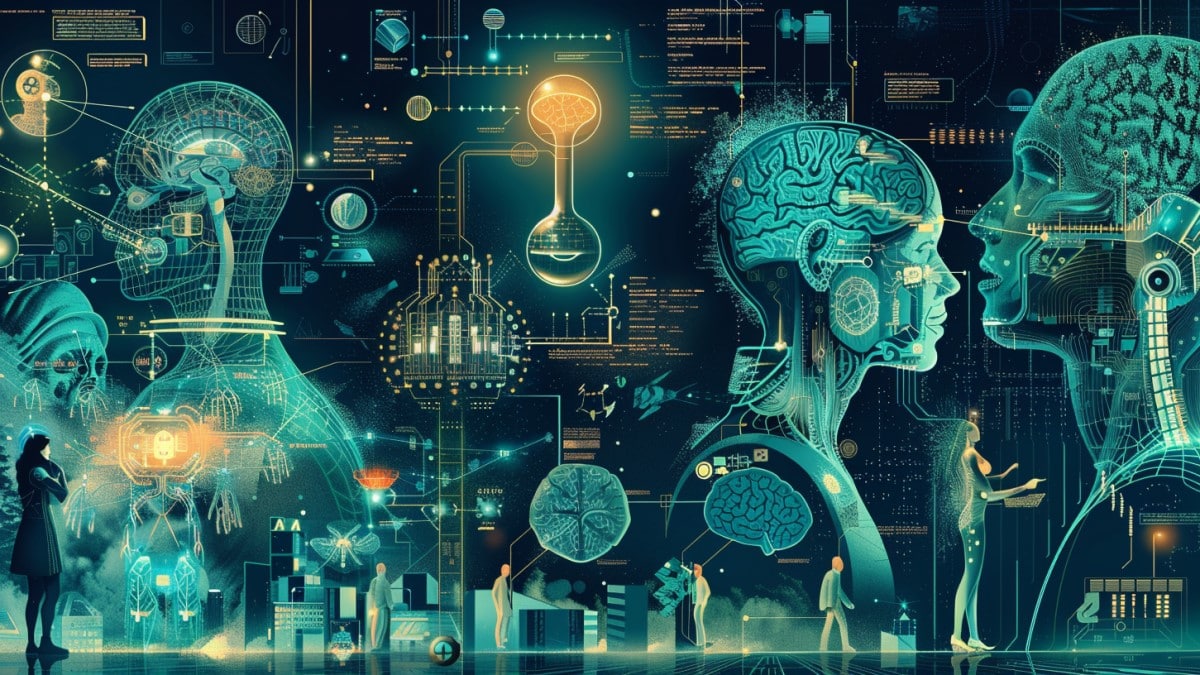Artificial intelligence (AI) is a technology that is constantly evolving and manifests itself through different types, each with specific capabilities and applications. From reactive memoryless AI to a hypothetical general AI that mimics human intelligence, this article explores the four main types of AI, how they work, practical examples, and future implications.
Artificial intelligence (AI) continues to revolutionize many aspects of our daily lives and global industry. At the heart of this technology are different types of artificial intelligence, each with its own capabilities and applications.
This article explores the four main types of artificial intelligence in detail, illustrating how each category serves different purposes while opening avenues for future innovation.
Responsive artificial intelligence
What is Responsive AI?
Reactive artificial intelligence represents the most basic level of artificial intelligence systems. These systems have no memories of past experiences and cannot use such information to influence their present decisions. Their work relies entirely on the current input they receive; therefore, they are unable to learn from their previous actions.
Practical examples of reactive artificial intelligence
A striking example of this type of artificial intelligence is AlphaGo, the Go game program developed by DeepMind, which in 2016 beat the human world champion. AlphaGo analyzes the current state of the game to make its moves without thinking about the previous parts.
Simple chatbots, used in customer services, also work on this model, responding to queries based solely on predefined scenarios without any memory of past interactions.
Limited memory AI
Characteristics of AI with limited memory
Limited memory AI can retain past data or observations for a short time. This capability allows these systems to learn from immediate experience and improve over time, providing the basis for more informed and adaptive decisions.
Applications of memory-limited artificial intelligence
Self-driving cars are a great example of using AI’s limited memory. They use continuous observation of their surroundings to make safe driving decisions. Voice assistants such as Siri and Alexa also use this type of artificial intelligence to personalize their responses based on previous interactions with the user.
AI based on theory of mind
The next frontier of AI
The theory of mind-based artificial intelligence remains largely in the realm of research. This type of artificial intelligence aims to understand and interact with others by taking into account their beliefs, desires and emotions. This level of empathy and understanding is necessary to enable more natural interactions between humans and machines.
Future implications
Although this type of artificial intelligence is not yet fully realized, its development could revolutionize areas such as personalized healthcare, where understanding the feelings and emotional reactions of patients could significantly improve treatment and care.
General Artificial Intelligence
Towards human-like intelligence
Artificial General Intelligence or AGI (Artificial General Intelligence) is a hypothetical goal of artificial intelligence research that aims to create machines capable of understanding, learning and applying intelligence at a level equal to or better than that of humans. An AGI would be capable of performing any intellectual task that a human can do.
AGI’s big challenge
Currently, AGI exists only in science fiction and academic theories. Its successful development would have a profound impact on all aspects of society, but it also raises ethical questions and security and governance concerns.
conclusion and perspectives
The following summary table provides a clear overview of the different capabilities and examples of each type of artificial intelligence:
| AI guy | Abilities | Examples |
|---|---|---|
| Responsive artificial intelligence | He reacts without remembering past actions | AlphaGo, basic chatbots |
| Limited memory AI | Learn from recent experiences | Self-driving cars, voice assistants |
| AI based on theory of mind | He understands emotions and intentions | In development, there are no concrete examples |
| General AI | Human or higher intellectual abilities | Hypothetically, without concrete examples |
Understanding the different forms of artificial intelligence is critical to predicting the future directions of this transformative technology. As researchers continue to push the boundaries of what’s possible, it’s critical to stay informed and participate in discussions about the future of artificial intelligence. We welcome your thoughts and opinions on this topic: How do you see the development of artificial intelligence in the coming decades?
